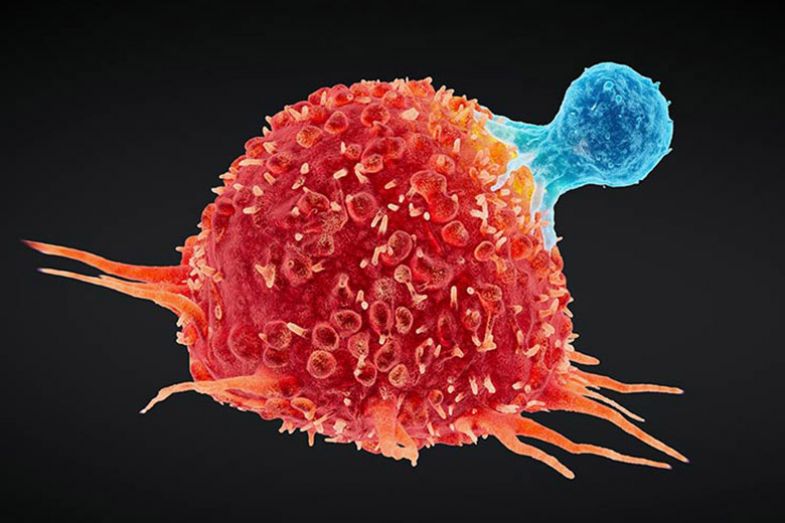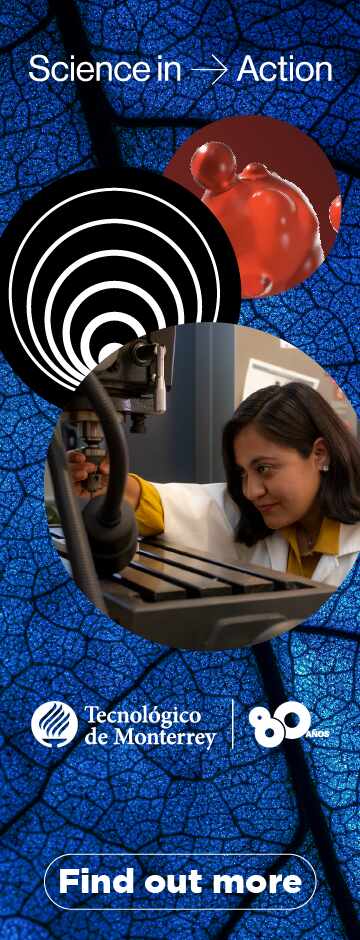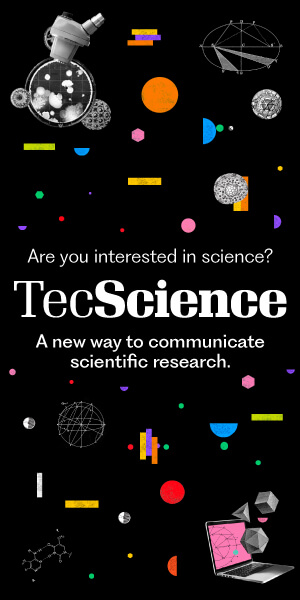
The incorporation of “cancer-on-a-chip” technology platforms will enable us to determine the most appropriate anti-cancer treatment for each individual, thereby promoting the future of personalized medicine.
Is it science fiction to believe that technology will determine the safest and most effective drug to treat someone with cancer by taking the individual’s clinical condition into account? It’s currently fiction, but science and technology are laying the foundations for personalized medicine to become a reality in the near future.
At present, diseases such as smallpox, measles, tetanus, diphtheria, and poliomyelitis have been controlled thanks to the implementation of vaccines and medical treatments. However, certain pathologies have proven resistant to cures, including cancer.
Why hasn’t it been possible to find a definitive and universal treatment for this? Cancer is a very dynamic and highly heterogeneous disease. Each malignant tumor evolves and behaves differently. Nowadays, drug or therapeutic candidate evaluation is carried out in cell lines and on animal models (rats, mice, or rabbits). Unfortunately, these models have proven to be poor predictors of clinical efficacy and do not reflect the complexity of cancer pathophysiology in humans. As a result, it’s necessary to implement more precise technology platforms or biological models that can be extrapolated to humans.
Another aspect to consider is that every individual is unique and has genetic, cellular, biochemical, and physiological differences. From this perspective, personalized medicine appears to be the medicine of the future. The aim of this medical model is to design tailored and individualized treatments. That is why biomedical research groups on a global level are working on implementing technology platforms that enable them to evaluate the mechanism of action for anticancer drugs based on individual requirements.
Current situation
Despite being years away from this reality, we’re taking firm steps towards bringing it into being. For example, the Strategic Focus Research Group (GIEE) in Biomedical Engineering at Tecnológico de Monterrey (Álvarez-Trujillo Lab) is developing cancer-on-a-chip platforms.
These systems are useful both for conducting fundamental disease research and for evaluating drug efficacy in biological models that recapitulate the microenvironment in which tumors develop in the human body.
The manufacture and application of these systems involves technologies such as 3D printing of chips that democratize the manufacture of these devices, microfluidic technologies that allow the systems to operate with small amounts of fluid, and tissue engineering and biomanufacturing that enable the generation of 3D tumor models.
Cancer-on-a-chip models
Cancer-on-a-chip models with distinct advantages have been developed at the Álvarez-Trujillo Lab. One of these consists of a 20 x 20 mm microdevice with a central chamber containing a cancerous biological model (a spherical microtumor surrounded by an acellular biological support), flanked by microfluidic channels through which nutrients and anticancer drugs are continuously perfused. This system has a base that is optically accessible to the microscope, which allows for real-time monitoring of the biological model.
Another model consists of a miniaturized continuous stirred tank reactor, a 3 ml tank-like device that contains a magnetic stirrer to cultivate a well-mixed environment and allows for continuous addition of nutrients or drugs. Through this platform, it’s possible to continuously assess the dynamics of the biological system inside the reactor by analyzing the fluid harvested as it leaves. For example, the anticancer effect of a drug on a tumor model is indirectly detected by sensing lower metabolic activity in the microtumor when the culture medium collected by the reactor is analyzed.
The miniaturized continuous stirred tank reactor has also been used to grow and mature “microtumors” from model breast cancer cell line aggregates (MCF7). Thanks to effective mixing and the continuous supply of nutrients, microtumors remain viable for long periods (30 days). These microtumors were used as biological models to evaluate the anticancer efficacy of three pharmacological therapies (docetaxel, doxorubicin, and paclitaxel) commonly used in the clinic. As expected, results demonstrated a dose- and time-dependent response in reducing the microtumors’ viability for each drug. The ability of these systems to distinguish the effect between dose and drugs with different mechanisms of action validates the usefulness of this system when screening treatments.
New challenges
The next challenge will consist of obtaining cancerous tumor biopsies and evaluating the mechanism of action of different therapies (or a combination of these) on our cancer-on-a-chip devices.
Tecnológico de Monterrey reaffirms its social commitment through research and implementation of innovative platforms, promoting multidisciplinary synergies that involve computer simulation techniques, genomic sequencing, tissue engineering, and 3D cell culture and bioprinting to obtain targeted results that can be extrapolated to clinical practice.
These new tools will provide robust and precise technological solutions that will allow treating physicians to prescribe personalized anticancer therapy according to the needs of each individual.
Author
Salvador Gallegos Martínez. Holds a Ph.D. in Biotechnology from Tecnológico de Monterrey’s School of Engineering and Sciences. He is currently a postdoctoral researcher and full professor at the same institution. Contact: salvador.gallegos@tec.mx. ORCID: https://orcid.org/0000-0001-5780-7946
Advisors
Mario Moisés Álvarez. Holds a Ph.D. in Chemical and Biochemical Engineering from Rutgers University, a Level III member of the National Research System (CONACYT), and Director and Research Professor of the GIEE in Biomedical Engineering at the School of Engineering and Sciences. Tecnológico de Monterrey, Monterrey Campus. Contact: mario.alvarez@tec.mx. ORCID: https://orcid.org/0000-0002-9131-5344
Grissel Trujillo de Santiago. Holds a Ph.D. in Biotechnology from Tecnológico de Monterrey, a Level II member of the National Research System, winner of the 2019 L’Oréal-UNESCO-AMC Award, and co-director and research professor of the GIEE in Biomedical Engineering at Tecnológico de Monterrey’s School of Engineering and Sciences, Monterrey campus. Contact: grissel@tec.mx. ORCID: https://orcid.org/0000-0001-9230-4607
Editorial advisor
Jesús Eduardo Elizondo Ochoa. Holds a Ph.D. in Biotechnology (Tecnológico de Monterrey), a Doctor of Dentistry, International Doctor mention (UIC-Barcelona), GIEE research professor in Biomedical Engineering at the School of Engineering and Sciences and the School of Medicine and Health Sciences. Member of the National Research System (CONACyT). Contact: je.elizondo@tec.mx. ORCID: https://orcid.org/0000-0003-1763-9399
To find out more
Trujillo-de Santiago, G., Flores-Garza, B. G., Tavares-Negrete, J. A., Lara-Mayorga, I. M., González-Gamboa, I., Zhang, Y. S., Rojas-Martínez, A., Ortiz-López, R., & Álvarez, M. M. (2019). The Tumor-on-Chip: Recent Advances in the Development of Microfluidic Systems to Recapitulate the Physiology of Solid Tumors. Materials (Basel, Switzerland), 12(18), 2945.
Gallegos-Martínez, S., Lara-Mayorga, I. M., Samandari, M., Mendoza-Buenrostro, C., Flores-Garza, B. G., Reyes-Cortés, L. M., Segoviano-Ramírez, J. C., Zhang, Y. S., Trujillo-de Santiago, G., & Álvarez, M. M. (2022). Culture of cancer spheroids and evaluation of anti-cancer drugs in 3D-printed miniaturized continuous stirred tank reactors (mCSTRs). Biofabrication, 14(3), 10.1088/1758-5090/ac61a4.
Álvarez, M. M, Mendoza-Buenrostro C., Trujillo-de Santiago, G., Gallegos-Martínez, & S., Lara-Mayorga, I. M. (2022). Miniature agitation tank for culture and continuous perfusion of tissue. International Patent No. WO2022103249A1
Sánchez-Salazar, M. G., Crespo-López Oliver, R., Ramos-Meizoso, S., Jerezano-Flores, V. S., Gallegos-Martínez, S., Bolívar-Monsalve, E. J., Ceballos-González, C. F., et al. (2023). 3D-Printed Tumor-on-Chip for the Culture of Colorectal Cancer Microspheres: Mass Transport Characterization and Anti-Cancer Drug Assays. Bioengineering, 10(5), 554. MDPI AG. Retrieved from http://dx.doi.org/10.3390/bioengineering10050554
Are you interested in science?
TecScience, a new way to communicate scientific research. Visit: https://tecscience.tec.mx/en/










